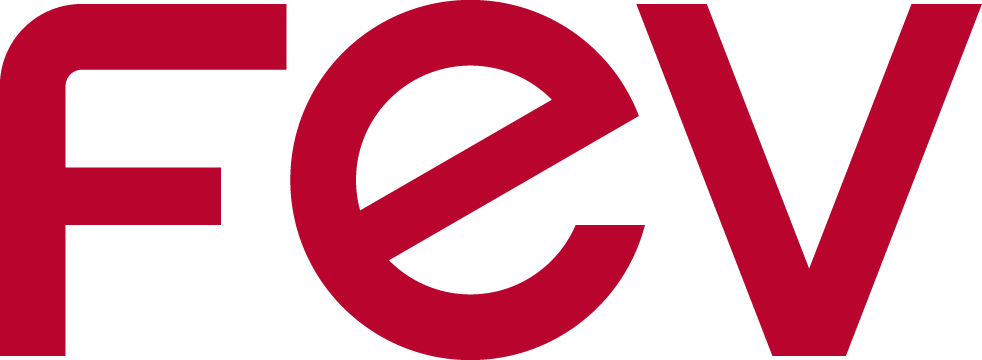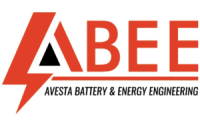Consortium
The strong and complementary consortium of 15+1 partners from 8 different European countries representing industrial companies, SMEs, RTOs and academia is coordinated by FEV Group.
The SUBLIME research project is scheduled to run from May 1st, 2020 to April 30th, 2024.
Find more details about the consortium in the list below or on the Cordis Factsheet here.
FEV Group
FEV is an independent internationally recognized company in the design and development of powertrains, power units and burners as well as a manufacturer of prototypes and instrumentation systems. FEV is certified at DIN ISO 9001 in research and development, manufacturing, sale and service – TÜV cert (Certificate registration N° 01 100 0000 10). FEV was founded in 1978 and has now approximately 5000 employees at different facilities worldwide. A large number of them are upgrade engineers (PhD and Diploma engineers). As a supplier FEV conducts the powertrain and power unit development projects from the initial concept phase through production release under direct implementation of the latest scientific discoveries. FEV has extensive experience in designing and developing new power systems as well as in the modification of existing designs. Our capabilities and experiences extend to power system packaging and powertrain systems integration, including the control of integrated powertrain functions, certification, calibration and homologation. FEV develops and uses mathematical models for the analysis of mechanical stress and noise and acoustic, combustion and flow processes, thermal and medium flow management and for catalysis processes. Moreover, FEV has gained significant experience in electrification of vehicles from HEV’s over Range Extender vehicles up to full battery electric vehicles, battery management, energy management, and model-based controls for all kinds of automotive systems.
FEV participates in the “European Green Vehicle Initiative”, the Public Private Partnership conceived by the European Commission in 2009 to focus public and private research on issues of direct and significant relevance to the Europe with regard to the competitiveness of industry and employment. Within this context, FEV is also actively involved in the European Technology Platform ERTRAC (road transport), the European Research Platform EARPA and EGVIA.
AVESTA BATTERY & ENERGY ENGINEERING
AVESTA Battery & Energy Engineering (ABEE) is a dynamic engineering company specialized in battery and energy technologies for automotive and stationary applications. Our expertise are involved in the battery system design, modelling (thermal & electrochemical), state-of-the-art battery manufacturing infrastructure, processing and prototyping, BMS & module assembly, extensive knowledge in artificial intelligence techniques & battery state estimations, validation & feasibility analysis related to advanced Li-ion and next generation solid-state battery technologies.
We are supporting the industries in the development of tailored made solutions from battery materials to recycling for automotive and stationary applications through the development of dedicated multiscale simulation tools and functions integrated in various platforms.
CENTRO DE INVESTIGACION COOPERATIVA DE ENERGIAS ALTERNATIVAS FUNDACION, CIC ENERGIGUNE FUNDAZIOA
CIC energiGUNE is the research center of electrochemical and thermal energy storage, a strategic initiative of the Basque Government. CIC energiGUNE was born in 2011 to generate excellent research in in energy related materials oriented to storage applications, contributing to industrial competitiveness. The development of innovative battery technologies for sustainable mobility is a key line at CICe, working with industrial companies (from local to European level) as strategic partners in the development of new products and processes. CICe will lead the development of sulphide-based solid electrolyte, coordinate the processing of the sulfide-based materials, evaluate the electrochemical performances of cells, develop a LCOS for battery manufacturing and will model the transport mechanisms.
FORD OTOMOTIV SANAYI ANONIM SIRKETI
Ford Otosan has the biggest and most capable R&D organisation of the Turkish automotive industry in Turkey with its R&D engineer staff of 1,389 people. Ford Otosan R&D Center is the global hub for heavy commercial vehicles and related powertrains and also global spoke for light commercial vehicle development and diesel powertrain engineering. Ford Otosan, which is recognized as the “Private Company with the Highest R&D Spending” in Turkishtime’s survey on “R&D 250, Turkey’s Top 250 Companies with Highest R&D Expenditures”, is the only Turkish company capable of designing the whole vehicle including the engine, and interior and exterior looks.
CENTRO RICERCHE FIAT SCPA
On a national scale, the Centro Ricerche Fiat plays an active role in several public and private research consortiums and collaborates with the Ministry for Universities and Research, the Ministry for the Environment and the Ministry for Economic Development. Particular attention is paid to relations with the surrounding territory: CRF is involved in projects and initiatives undertaken not only by Regions and Industrial Unions but also by Municipalities, Chambers of Commerce, Consortiums and by the local industrial fabric.
AIT Austrian Institute of Technology
AIT Austrian Institute of Technology GmbH is Austria’s largest non-university research institute with more than 1250 employees and more than 50 years of experience in laboratory development, research and accredited testing. Among the European research institutes, AIT is a specialist in the key infrastructure topics of the future. The AIT Center for Low-Emission Transport develops innovations for efficient, intelligent and safe vehicle components. The focus is on two key technologies for sustainable transport and mobility: powertrain electrification and material-based lightweight design.
In Sublime, AIT will investigate wet and dry processing of the solid electrolyte in order to establish processes for subsequent scale-up. These results will be used to test on a larger scale the pre-selected material combination and to optimize manufacturing parameters for larger-scale production. Furthermore, AIT will assemble and test the first prototype cells. AIT is also in charge of leading WP8, which bundles the project’s dissemination and communication activities.
MIMI TECH GMBH
MIMI Tech GmbH is a German based consulting company specializing in extractive metallurgy of non-ferrous metals and process technology for metallic high tech materials. The focus is to provide metallurgical expertise to smelters and refineries and to those companies that fabricate, trade, design, specify and test respective equipment. Consultancy projects are targeted to the following:
- Maximizing resource efficiency (raw materials, consumables, energy)
- Zero waste concepts and emission control
- Cost cutting metallurgy- optimisation of the interface to pretreatment
- Modelling of processes
Our typical client profile includes metal and high tech materials producers, original equipment manufacturers OEM, engineering companies, consultant engineers, government agencies, universities, law firms, banking institutions and technical societies. MIMITech is a global acting company with core business in Europe, North America and Asia.
Our contribution to the project will be to provide the baseline for the Recycling technology to close the loop between battery productions, use phase and resource recovery.
The biggest challenge will be not only to find a recycling route for the materials used in the new battery system but to prove the sustainability of the materials’ life cycle as a whole, such as to support the circular economy generating environmentally sound products and minimize waste generation.
POLITECNICO DI TORINO
Politecnico di Torino, founded in 1906 from the roots of the Technical School for Engineers created in 1859, has a long-standing tradition of leadership of polytechnic culture. It is one of the most important universities in Europe for engineering and architecture studies, strongly committed to collaboration with industry.
Two departments are involved in the project. The Department of APPLIED SCIENCE AND TECHNOLOGY (DISAT) which focuses on research and education involving the fundamental principles of matter and energy, their transformation and related engineering applications. The Department of ENERGY (DENERG) which is the point of reference in Politecnico di Torino for the areas of knowledge concerned with energy and sustainable development. In DISAT, the Electrochemistry Group, with more than 80 years of experience on electrochemical storage systems, is leading the task force on Batteries of Politecnico di Torino, is partner in several European associations, e.g. EGVIA, EERA, ETIP-SNEP and has been involved in several European Projects in the field of batteries.
In this project Politecnico di Torino will be involved in the characterization of electrode-electrolyte interfaces, the definition and realization of the performance and aging test protocols and in the modeling activities.
SAFT
For more than 100 years, Saft produces longer-lasting batteries and systems which have provided critical safety applications, back-up power and propulsion. Saft innovative, safe and reliable technology delivers high performance in space, at sea, in the air and on land. Saft is a fully owned subsidiary of Total. With 796 M€ of sales in 2019 and more than 3000 customers, Saft employs 4500 people from 49 countries. Saft invests 12.4% of its turnover in R&D and has some of the brightest minds working on developing and producing batteries; around 1.5 percent of Saft employees have PhDs.
Saft has a broad range of experts dedicated to research and innovation, including chemists, material scientists, mechanical engineers, electronic and software engineers.
Located in Bordeaux (France), the main corporate research team and the technology incubator work from TRL1 to TRL6 on development of new materials, electrochemical concepts, electrode and cell design, processes for electrode preparation, modelling and battery management system. Saft’s equipments in World Class laboratories and dry-rooms, allow fast scaling-up from lab-scale cells to scale 1 prototype manufacturing.
In SUBLIME project, Saft participates to the development of the formulation of positive electrode and solid electrolyte layer based on its almost 30 years’ experience in Lithium-ion technology. As a very experienced battery manufacturer in Li-ion cell, Saft helps the project’s partners to define the most critical parameters that enable to obtain the best electrochemical performance. The main tasks on which Saft focus its activities in this project are the cell design, the definition of the electrode and solid electrolyte processes and the production of electrodes and cells to provide prototypes to partners for full performance assessment.
SOLVAY
Solvay is a science company whose technologies bring benefits to many aspects of daily life. Our purpose—we bond people, ideas and elements to reinvent progress—is a call to go beyond, to reinvent future forms of progress and create sustainable shared value for all through the power of science. In a world facing an ever-growing population and quest for resources, we aim to be the driving force triggering the next breakthroughs to enable humanity to advance while protecting the planet we all share.
TNO, Netherlands Organisation for Applied Scientific Research
TNO is one of the major contract research organisations in Europe. With a staff of approximately 2600 and an annual turnover of 477 million Euros, TNO is carrying out research in order to achieve impact on nine social themes, amongst others: Industry, Healthy Living, Traffic and Transport, Energy and Circular Economy. TNO functions as an intermediary between basic research organisations and industry. By translating scientific knowledge into practical applications, TNO contributes to the innovation capacity of businesses and government. TNO is involved in many international projects (about 30% of the market turnover), including EC-funded collaborations.
TNO is a founding father of the collaboration under the brand name Holst Centre, an open innovation centre that develops innovative technologies with respect to wireless sensor systems and flexible electronics with around 160 researchers, as well as industrial residents from its partner companies. A key feature is its partnership model with industry and academia comprising more than 30 international companies. Holst Centre/TNO has major activities in the areas of large area energy devices, hybrid printed electronics and transistor technology. Its aim is to develop technologies and processes that will then be transferred to partner companies.
In SUBLIME, TNO’s mission is to develop an upscalable method for lithium metal passivation, and cathode/sulfide interface stability using s-ALD based thin films.
FRAUNHOFER GESELLSCHAFT ZUR FOERDERUNG DER ANGEWANDTEN FORSCHUNG E.V.
The Fraunhofer-Gesellschaft, headquartered in Germany, is the world’s leading applied research organization. With its focus on developing key technologies that are vital for the future and enabling the commercial exploitation of this work by business and industry, Fraunhofer plays a central role in the innovation process. As a pioneer and catalyst for groundbreaking developments and scientific excellence, Fraunhofer helps shape society now and in the future. Founded in 1949, the Fraunhofer-Gesellschaft currently operates 74 institutes and research institutions throughout Germany. The majority of the organization’s 28,000 employees are qualified scientists and engineers, who work with an annual research budget of 2.8 billion euros. Of this sum, 2.3 billion euros is generated through contract research.
COMMISSARIAT A L ENERGIE ATOMIQUE ET AUX ENERGIES ALTERNATIVES
The French Alternative Energies and Atomic Energy Commission (CEA) is a key player in research, development and innovation in four main areas:
- defence and security,
- low carbon energies (nuclear and renewable energies),
- technological research for industry,
- fundamental research in the physical sciences and life sciences.
Drawing on its widely acknowledged expertise, the CEA actively participates in collaborative projects with a large number of academic and industrial partners.
The CEA is established in nine centers spread throughout France. It works in partnership with many other research bodies, local authorities and universities. Within this context, the CEA is a stakeholder in a series of national alliances set up to coordinate French research in energy (ANCRE), life sciences and health (AVIESAN), digital science and technology (ALLISTENE), environmental sciences (AllEnvi) and human and social sciences (ATHENA).
UMICORE
Today Umicore is a global materials technology and recycling group with about 11,152 employees and revenues (excluding metal) of € 3.4 billion (turnover of € 17.5 billion) in 2019.
Umicore generates the majority of its revenues and dedicates most of its R&D efforts to clean technologies, such as emission control catalysts, materials for rechargeable batteries and recycling. Umicore’s overriding goal of sustainable value creation is based on an ambition to develop, produce and recycle materials in a way that fulfils its mission: materials for a better life.
UNIRESEARCH BV
Since its start in 1994, Uniresearch has become a successful and independent grants & innovation consultancy firm specialised in national and European grants in the field of innovation, research and technological development. With a diverse portfolio of clients across Europe we advise on grant opportunities, prepare and submit grant applications and take care of the administrative process. Our services range from grant consultancy, grant coordination to projectmanagement and dissemination activities.
Technische Universität Braunschweig
The Technische Universität Braunschweig (TU Braunschweig, TUBS) was founded in 1745 and is the oldest technical university in Germany. More than 3.500 employees collaborate in six faculties. Due to several networks with various industrial partners, TUBS is among the top ten Universities in Germany where about 20.000 students undertake their studies and support the novel research programs. In the past years, six interdisciplinary research centers were established at TUBS, one being the Battery LabFactory with more than 70 employees.
TUBS will be involved in the project as linked third party through its Institute for Particle Technology (iPAT) and its research center Battery LabFactory Braunschweig, both headed by Prof. Arno Kwade. The Institute of Particle Technology is internationally among the leading institutes for particle technology and battery electrode production and employs approx. 100 scientific staff in five research areas with wide interdisciplinary collaborations within the TUBS and beyond. Their research deals with the electrode production especially for LIBs, combining professional competences in the field of mixing and dispersing processes, coating and drying of electrodes, calendaring, and suitable product characterization methods.
In the project, TUBS will be a part of WP 5. The main part will be the joint production of the electrodes and the mutual cell prototype manufacturing (packaging and stacking) as well as process-related analytics. Furthermore, electrode strip manufacturing, such as lamination.














